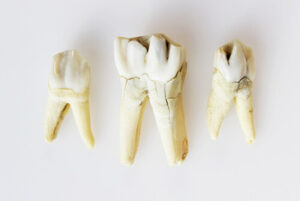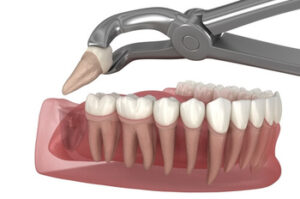Wisdom teeth removal is a common dental procedure, yet the recovery journey can feel daunting without the right guidance. Whether you’re preparing for wisdom tooth extraction or navigating the recovery process, understanding what to expect and how to care for yourself is essential. This guide will walk you through the wisdom teeth removal recovery process, including tips for managing pain, promoting healing, and resuming normal activities.
What to Expect After Getting Your Wisdom Teeth Removed
Wisdom teeth removal is a routine procedure, but the recovery process can vary for everyone. Being informed about what to expect after the surgery can help you manage discomfort, care for the extraction site, and ensure a smooth and speedy recovery.
The Immediate Aftermath of Surgery
It’s normal to experience mild discomfort, swelling, and some bleeding following wisdom teeth surgery. Your dentist will provide instructions to help manage these initial symptoms. Controlling bleeding is key, and biting down gently on gauze can help a blood clot form at the extraction site, a critical step in healing.
Recovery Period: Day-by-Day Breakdown
- First 24 Hours: Expect swelling, mild discomfort, and some bleeding. Avoid rinsing your mouth vigorously or using a straw, as this could dislodge the blood clot.
- Days 2-3: Swelling peaks, but with the help of an ice pack and prescribed medications, discomfort should begin to subside.
- Days 4-7: The wound healing process kicks in, with the gum tissue starting to repair itself. Stick to a soft food diet, avoiding spicy foods and soft drinks.
- After a Week: Many people resume normal activities, although full recovery may take at least a week or more.
Managing Pain and Swelling After Wisdom Teeth Surgery
Pain and swelling are common after wisdom teeth surgery, but they can be effectively managed with the right care. Understanding how to minimise discomfort and reduce inflammation will help you stay comfortable and support the healing process.
Pain Relief Tips
- Follow your dentist’s instructions for taking pain medication to help alleviate discomfort.
- Use an ice pack on your cheeks during the first 48 hours to reduce swelling.
Postoperative Complications: What to Watch For
Potential issues after wisdom tooth extraction although most recoveries are smooth, it’s essential to be aware of complications, including:
- Dry Socket: A painful condition that occurs when the blood clot is dislodged, leaving the bone and nerves in the tooth socket exposed.
- Infection: Symptoms like fever, worsening swelling, or discharge from the extraction site.
- Nerve Damage: Tingling or numbness in the lips, tongue, or chin, although rare, should be reported immediately.
- Jaw Stiffness: Temporary stiffness is normal but should improve over time.
When to Seek Medical Attention Contact your dentist if you notice:
- Persistent bleeding after 24 hours
- Severe pain that doesn’t respond to pain medication
- Swelling that worsens instead of improving. Avoid touching the surgery site with your tongue or fingers, as this may disturb the blood clot.
Avoiding Severe Pain and Complications
Complications like a dry socket can occur if the blood clot is dislodged prematurely. This painful condition exposes the tooth socket and slows the healing process. To minimise risks:
- Avoid drinking through a straw or eating crunchy foods.
- Stick to a soft food diet, including mashed potatoes, yoghurt, and other soft foods.
Keeping Your Mouth Clean During Recovery
Maintaining good oral hygiene is critical during recovery to prevent infection:
- Begin rinsing gently with warm salt water 24 hours after the wisdom teeth removal to maintain a clean wound.
- Refrain from brushing close to the extraction site for the initial few days, and then slowly resume brushing the nearby teeth with care.
- Steer clear of spicy foods or drinks that could irritate the healing gums.
Foods to Eat and Avoid After Wisdom Teeth Removal
A soft food diet is your best friend during recovery. Stick to easy-to-eat options like:
- Soups (at room temperature)
- Mashed potatoes
- Smoothies (without a straw)
- Pudding and jelly
- Other soft foods like scrambled eggs or oats
Foods and Drinks to Avoid
To safeguard the blood clot and support healing, refrain from:
- Crunchy or hard foods
- Soft drinks and alcohol
- Spicy foods or overly hot beverages
When to Contact Your Dentist
While the recovery process for most people is smooth, certain symptoms require prompt attention:
- Excessive bleeding that doesn’t subside after applying pressure
- Throbbing pain that doesn’t improve with pain relief
- Signs of infection, including fever or swelling that worsens after a few days.
If you experience any of these, contact your dentist immediately.
Tips for a Speedy Recovery
Dos for Faster Healing
- Follow your dentist’s instructions for care.
- Rest and limit strenuous activities during the initial few days of recovery.
- Keep your mouth clean without disturbing the surgery site.
Don’ts During Recovery
- Don’t smoke, as it can delay healing and increase the risk of gum disease.
- Avoid using a straw to prevent dislodging the blood clot.
- Don’t rush into eating normal foods until your gum tissue has sufficiently healed.
Preparing for Wisdom Teeth Removal Procedure
Essential pre-surgery steps for a smooth recovery before undergoing wisdom teeth removal; preparation is key to a comfortable recovery. Here are some tips to ensure you’re ready:
- Schedule Time Off: Wisdom teeth removal can leave you feeling sore and groggy. Plan for at least a few days off work, school, or other commitments to rest and recover.
- Arrange Transportation: If your procedure is a complex one, you won’t be able to drive yourself home. Have a family member or friend accompany you.
- Stock Up on Supplies: Prepare for the healing period by gathering essentials like soft foods, ice packs, and over-the-counter pain medication.
- Comfort at Home: Have extra pillows to keep your head elevated while sleeping and entertainment options like books or movies to pass the time.
Why Do Some People Have More Wisdom Teeth Than Others?
Not everyone develops the same number of wisdom teeth. While most people have four, some may have none, one, or even additional wisdom teeth, known as supernumerary teeth. Here’s why:
- Evolutionary Factors: Early humans needed more molars for grinding coarse, fibrous diets. As our diets softened and our jaws became smaller, the need for wisdom teeth diminished.
- Genetic Influence: The number and presence of wisdom teeth are often determined by genetic factors inherited from parents. Some populations are more likely to lack wisdom teeth altogether due to evolutionary adaptations.
Long-Term Oral Health Benefits of Wisdom Teeth Removal

- Avoid Misalignment: Impacted wisdom teeth can push other teeth out of place, disrupting orthodontic work or natural alignment.
- Prevent Gum Disease: Partially erupted wisdom teeth are hard to clean, boosting the risk of infection and gum disease.
- Protect Neighboring Teeth: Wisdom teeth can cause decay or damage to nearby molars if left untreated.
Post-extraction, maintaining a clean and healthy mouth becomes easier without the challenges posed by impacted or partially erupted wisdom teeth.
Managing Anxiety About Wisdom Teeth Surgery
Tips to Stay Calm:
- Breathing Exercises: Practise deep breathing techniques to reduce stress on the day of the procedure.
- Focus on the Outcome: Remind yourself that the surgery is a step toward better oral health and long-term comfort.
- Creating a Comfortable Environment: Bring a soothing playlist or ask the clinic staff about amenities to help you feel more relaxed in the dental chair.
Comparing Recovery Timelines for Simple vs. Complex Extractions
How Complexity Affects Recovery
- Simple Extractions: Fully erupted teeth are easier to remove, often resulting in quicker recovery times of 2-3 days.
- Surgical Extractions: Impacted wisdom teeth require incisions and sutures, leading to longer recovery times of up to two weeks.
Factors Influencing Recovery
- Tooth Position: Teeth closer to nerves or deeply impacted in the jawbone may prolong the healing process.
- Age of the Patient: Younger patients tend to recover faster due to better regenerative capacity.
Caring for the Surgery Site Beyond the First Week
Long-Term Care Tips
- Monitor Healing Gums: Watch for signs of infection, such as redness or swelling, even after the initial week.
- Maintain Oral Hygiene: Gradually reintroduce brushing and flossing around the extraction area to prevent plaque buildup.
- Follow-Up Appointments: Regular visits to your dentist ensure the site is healing properly and prevents future issues.
Wisdom Teeth Removal Recovery for Teens vs. Adults
Teenagers often recover faster due to quicker healing and less dense jawbones. However, scheduling the procedure during school breaks can prevent disruptions to their routine.
Adults may face longer recovery times as their bones are denser, and surgical extractions can be more complex. Care and rest are vital to ensure a smooth recovery.
Common Questions About Wisdom Teeth Removal Recovery
- Can I Exercise During Wisdom Teeth Recovery?
It’s best to avoid strenuous activities for the first few days after surgery. Physical exertion can increase blood flow and may dislodge the blood clot, leading to complications like a dry socket. Light activities like walking are fine after a few days, but always follow your dentist’s advice.
- When Can I Eat Solid Foods Again?
You can gradually reintroduce solid foods as your gums heal, typically after a week. Start with soft and easy-to-chew items, and avoid hard, crunchy, or spicy foods until you feel comfortable.
- How Long Should I Take Pain Medication?
Pain medications are usually needed for the first 2-3 days after surgery. After that, over-the-counter options like ibuprofen may suffice. Always follow the dosage instructions given by your dentist.
- What Happens If I Miss a Follow-Up Appointment?
Follow-up appointments are essential to ensure proper healing and to detect any complications, such as infections or improper wound healing. If you miss one, contact your dental clinic to reschedule as soon as possible.
- Is Swelling Normal After Wisdom Teeth Removal?
Yes, swelling is a common part of the healing process and typically peaks around the second or third day after surgery. Applying an ice pack within the initial 48 hours can assist in minimising swelling. If it persists or worsens after a week, consult your dentist.
- Can I Drink Coffee After Wisdom Teeth Removal?
It’s best to avoid hot beverages, including coffee, for at least 24-48 hours after surgery. Hot liquids can disrupt the blood clot and delay healing. Once the wound has started healing, lukewarm coffee may be safe, but consult your dentist if unsure.
- How Do I Know If My Gums Are Healing Properly?
Signs of proper healing include reduced swelling, minimal pain, and the closure of the extraction site over time. If you notice increased redness, swelling, or discharge, or if the pain worsens after a few days, contact your dentist immediately.
- Can I Smoke After Wisdom Teeth Removal?
Smoking should be avoided for at least 72 hours post-surgery. Smoking can dislodge the blood clot and significantly increase the risk of dry sockets, delaying the healing process and potentially causing severe pain.
- When Can I Brush My Teeth Normally Again?
You can resume gently brushing your teeth 24 hours after surgery, avoiding the extraction site. After about a week, once the gums begin healing, you can slowly return to your normal brushing routine. Use a soft-bristled toothbrush to prevent irritation.
- How long does wisdom teeth surgery take?

- How Long Does the Recovery Process Take?
For most people, the recovery period lasts about 7-10 days, but it can take longer for the gum tissue to heal fully. Follow-up appointments with your dentist will ensure everything is progressing smoothly.
- Is It Safe to Brush My Teeth Normally After Wisdom Teeth Removal?
You can resume oral hygiene the day after surgery but avoid the extraction site. Use a soft-bristled toothbrush and be gentle around the affected area.
13 . Is It Normal to Feel Mild Discomfort After a Week?
Some mild discomfort and tenderness can persist, but severe pain or swelling after a week should be evaluated by your dentist immediately.
Why Wisdom Teeth Removal Is Important for Future Oral Health
Leaving impacted wisdom teeth without treatment can lead to tooth decay, infections, or damage to neighbouring teeth. While the removal procedure is a routine procedure, the benefits for your future oral health are immense, preventing potential complications down the road.
Final Thoughts: Healing Gums and Moving Forward
Wisdom teeth removal recovery may seem overwhelming, but with the right care, you’ll be back to normal activities in no time. Remember to follow your dentist’s instructions, prioritise rest, and maintain good oral hygiene to support the wound healing process.
For a smooth experience, choose a trusted dental clinic for the procedure. If you have questions or need guidance, book a consultation with Dental 266 at 02 9051 0600 to help you on your recovery journey.
Note: Any surgical or invasive procedure carries risks. Before proceeding, you should seek a second opinion from an appropriately qualified health practitioner.
References:
- Mayo Clinic. (n.d.). Wisdom tooth extraction. Retrieved from https://www.mayoclinic.org/tests-procedures/wisdom-tooth-extraction/about/pac-20395268
- Cleveland Clinic. (n.d.). Dry socket. Retrieved from https://my.clevelandclinic.org/health/diseases/17731-dry-socket
- MedlinePlus. (n.d.). Over-the-counter pain relievers Retrieved from https://medlineplus.gov/ency/article/002123.htm
- Colgate. (n.d.). What is good oral hygiene? Retrieved from https://www.colgate.com/en-us/oral-health/adult-oral-care/what-is-good-oral-hygiene
- St John Ambulance. (n.d.). How to use a cold compress. Retrieved from https://www.sja.org.uk/get-advice/how-to/how-to-use-a-cold-compress/?srsltid=AfmBOoorRvz3hrtVRVx2IszRvShDad97JgGEZq_l4W19pxhT0Omj2Yx8







